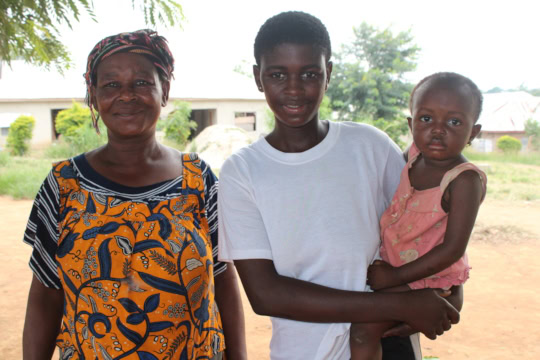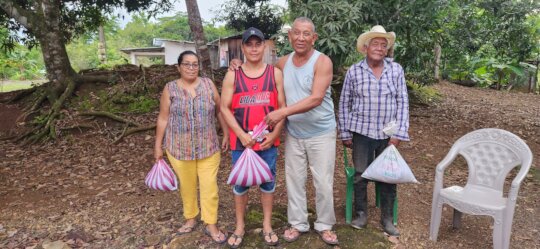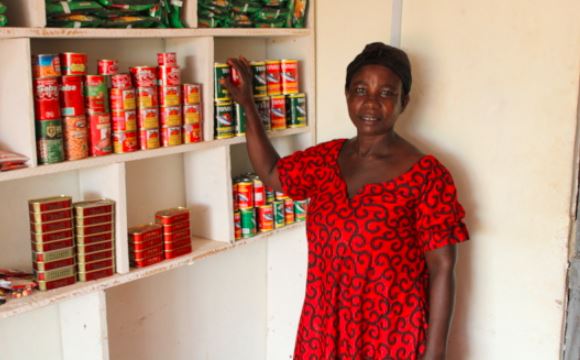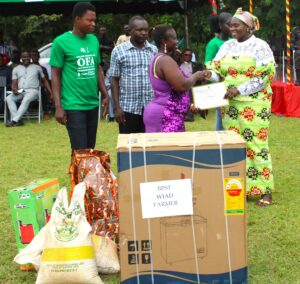Fighting Malnutrition With Education

Felicia is a resident of Bedaabour in the Ashanti region of Ghana. She used the Growing Healthy Food, Growing Healthy Children program to learn about better nutrition for her children and began farming and a soap making business using micro-credit loans from SHI. She also went on to coach other women.
Dr. Norman Borlaug once said, “You can’t build a peaceful world on empty stomach and human misery.” These inspiring words still ring true in 2022.
In order to reduce stunted growth among children in Ghana where 25 percent of children are stunted as a result of malnutrition, Self-Help International implements the Growing Healthy Food, Growing Healthy Children (GHFGHC) program in two Ghana communities, Beposo and Kukuboso.
Beposo, in particular, is the most challenged of all the villages under SHI and has the greatest percentage of children experiencing malnutrition in the entire country, which in turn poses a threat to the
socio-economic development of that community.
Felicia was one of the women who saw positive changes in her children’s growth and appearance after participating in the GHFGHC program. At the time when the program started, her baby was two months old. Felicia had never been able to practice exclusive breastfeeding with her previous children. Following the training sessions on nutrition and health that she received from the program, she implemented what she had learned and was able to practice exclusive breastfeeding for the first time. As a result of the knowledge she had gained, she also went on to coach other women.
Prior to the intervention of the GHFGHC Program, the people of Beposo believed it was normal for children born in the village to be born thin and small. This was due to the long standing issue of child malnutrition in the community for many years, which led the inhabitants to believe that being born thin and small was the norm for children born in that village. This long held myth has now been broken among the inhabitants in the village since women under the program are giving birth to bigger and healthier babies.
Under the GHFGHC program, women undertake training activities that empower them with economic knowledge as well as knowledge on proper nutrition and how to source and process it and are also given access to micro-credit loans to undertake economic ventures to earn income.
The nutrition team counsels women on the need for exclusive breastfeeding during the first 1,000 days, trains them on weaning techniques and provides them with information on maternal and child health and nutrition.
Women are taught how to replace low quality weaning foods that cannot meet infant requirements for development with foods such as tom brown (a porridge that consists of Quality Protein Maize and peanuts roasted and milled together) which makes a big difference in the growth of the children. They learn to mash hard egg yolk into a fortified grain porridge that provides protein, good fats, and minerals such as iron and zinc.
The agricultural team provides training sessions on how best to cultivate plants suitable for weaning babies such as Orange Fleshed Sweet Potatoes (OFSP) and also supplies them with the vines to cultivate them on their own. This is in a bid to introduce high-quality beta carotene into the diets of both mothers and babies to prevent vitamin A deficiency. Cooking demonstrations are also carried out to teach the women how to prepare tasty meals that do not destroy food nutrients.
The micro-credit team also supports women with loans to start a business and also provides them with business training to enable them to transact their businesses effectively.
This represents a three-pronged holistic approach towards solving the problem of malnutrition by tackling it from an economic, agricultural, and nutritional angle.




